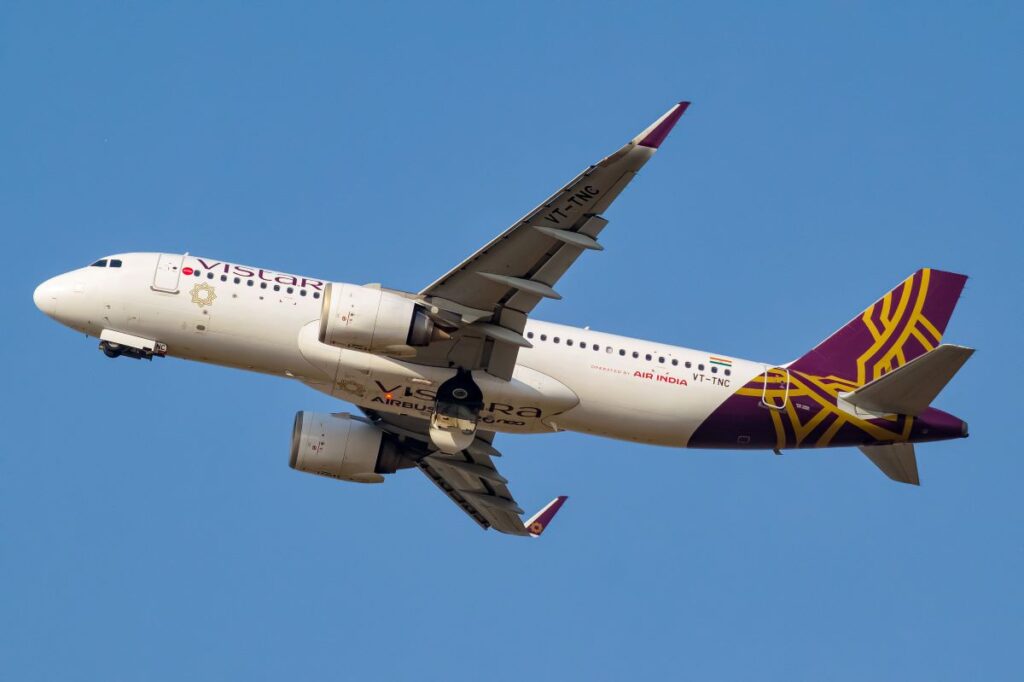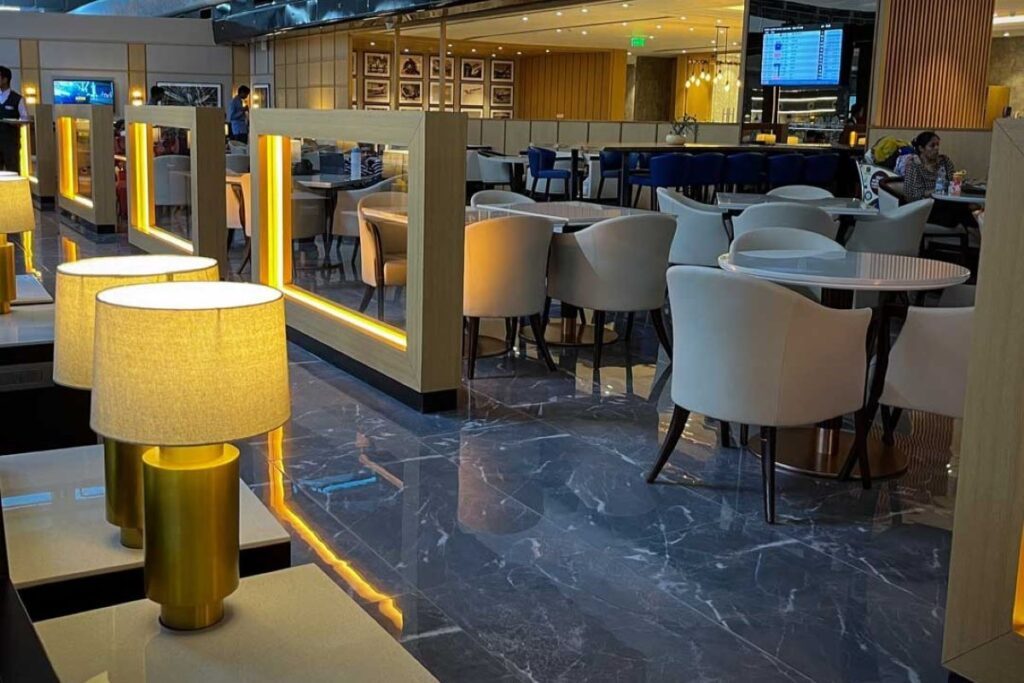[ad_1]
Last week the world’s largest airline alliance Star Alliance opened its first branded airport lounge in Asia at China’s Guangzhou Baiyun International Airport. In India, lounges are highly popular among traveers and massive queues outside airport lounges are common.
India has over 60 lounges across over 140 airports in the country.
“Consumers in India rate airport lounge access as one of the most appealing travel-related rewards,” according to airport and travel enhancement company Collinson International’s country director for India and South Asia Sumit Prakash.
Collinson International has expanded its network of airport lounges and travel experiences in India by 15% over the last 12 months.
The appeal of airport lounges is so significant among Indian travelers that they are being replicated at Indian railway stations, such as the Executive Lounge at Chennai Central, New Delhi, and Varanasi stations.
“Airport lounges hold a special allure for Indian travelers. Some of the key factors for this include comfort, convenience, and food. The sense of luxury and exclusivity associated with airport lounges is also a significant draw,” airport lounge operator Encalm Hospitality’s CEO Vikas Sharma told Skift.
The Role of Travel Cards: Travel credit cards have played a key role in increasing airport lounge visits. Sharma said that many credit cards provide complimentary access to premium lounges, incentivizing cardholders to explore and use these facilities.
“Credit card companies actively promote lounge access benefits through marketing campaigns and direct communication,” Sharma said.
Collinson’s research in September revealed that when choosing to sign up for a credit card, 48% of millennials in India indicated that travel benefits, such as earning and redeeming miles, having access to airport lounges and travel experiences, as well as travel insurance are perks that they value most.
Almost 90% Indian respondents agreed that access to airport lounges is a travel benefit that they would expect on any credit card with an annual fee, while 89% would consider switching to a new card if their payment card stopped offering airport lounge membership as a benefit.
“Increased travel-related investment, coupled with Indian travelers placing a greater value on travel experiences, presents opportunities for financial services brands to design strong travel-experience propositions,” Prakash shared.
Data We Love: Indian Tourists to Japan up 30% in October
The number of Indian travelers to Japan in October this year was nearly 30% more than last year. About 21,700 Indian travelers visited the nation in October 2024, compared to 16,800 last year, according to Ryo Bunno, executive director of Japan National Tourism Organization (JNTO) Delhi. He further estimated that between January and October this year, over 192,000 Indians have visited Japan.
“The trend of Free Independent Travellers (FIT) is on the rise, particularly in Mumbai, reflecting a shift in traveller’s preferences for personalized itineraries and offbeat experiences,” Bunno said. He added that Indian travel agents are also making queries beyond the well known Golden Route, comprising Tokyo, Osaka, Kyoto, and Hiroshima.
Last week, the organization concluded a three-city roadshow in Delhi, Bengaluru, and Mumbai providing a platform to help connect Japanese travel players to partners in India.
Radisson Debuts Park Inn & Suites brand in Odisha, Maharashtra
The Radisson Hotel Group has signed Park Inn & Suites by Radisson-branded hotels in Odisha’s Puri and Nashik in Maharashtra. This marks the debut of the brand in both the states.
The 62-room Puri hotel is scheduled to open next year, while the Nashik property will have 55 rooms and will open in 2026.
The openings are part of Radisson’s partnership with Treebo Hospitality Ventures (THV). Under the partnership, which commenced with the launch of the brand in 2022, Treebo will add 150 properties under the brand over a 10-year period. The focus of the midscale brand is on smaller Tier-2 and 3 cities.
Air India Optimizes Fleet Post Vistara Merger
Full-service airline Air India has said that it has optimized its domestic route network after its merger with Vistara. As part of this optimization, starting next month, the airline will prioritize the deployment of its best narrowbody aircraft on five key metro-to-metro routes: Delhi-Mumbai, Delhi-Bengaluru, Delhi-Hyderabad, Mumbai-Bengaluru, and Mumbai-Hyderabad.
Accordingly, all flights on these routes will be operated on A320-series aircraft that were being operated by Vistara before the merger. These narrowbody aircraft will have a three-cabin class configuration — Business, Premium Economy, and Economy cabins.
CEO Campbell Wilson said that more routes will progressively get new narrowbody planes as the airline will induct new aircraft and complete the retrofitting of its legacy fleet.
The airline is also changing flight schedules to spread out departures throughout the day, it said.


Cygnett Hotels & Resorts Signs Hotel in Kharagpur
Cygnett Hotels & Resorts has signed Cygnett Inn Kharagpur in West Bengal as a part of its expansion plan in the country. The full-service midscale hotel will have an inventory of more than 75 rooms, the company said in a statement.
Sarbendra Sarkar, Cygnett’s founder and managing director said that there is a steady demand growth across major markets in the Indian hotel industry and the midscale segment is playing a key role in fueling demand for rooms.
Cygnett plans to expand its portfolio to 100 operational hotels by 2029. “In the coming years, we plan to expand strategically across destinations with high tourism appeal and strong business activity,” Sarkar added.
[ad_2]
Source link

